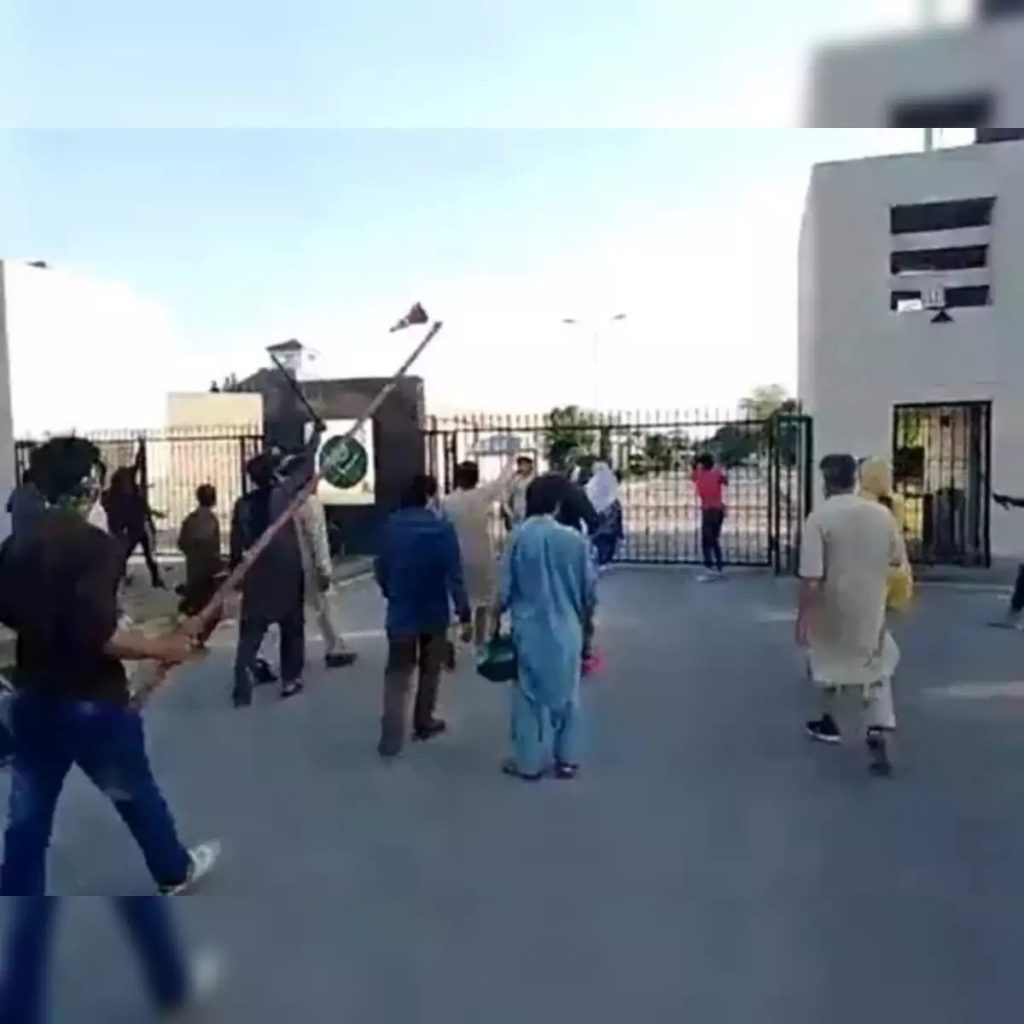The Pakistan Tehreek-e-Insaf (PTI) leadership has raised objections to the trials of individuals involved in the May 9, 2023, attacks in military courts. However, PTI’s historical support for the establishment and jurisdiction of military courts contradicts its current stance.
In 2015, PTI Chairman Imran Khan and other party leaders openly supported the establishment of military courts, emphasizing their necessity for combating terrorism and ensuring national security. At the time, Imran Khan stated that “military courts are the need of the hour” and were essential for Pakistan’s safety. This endorsement from PTI highlights a significant departure from their current objections to military court trials, particularly for civilians involved in attacks on state institutions.
The violent protests following Imran Khan’s arrest on May 9, 2023, led to unprecedented attacks on military installations, including the destruction of sensitive facilities. These incidents were widely condemned as acts of organized violence, raising serious concerns about accountability. When the accused individuals were selected for trial in military courts, PTI leadership chose to distance itself from the legal process, leaving its workers without support.
This decision contrasts starkly with PTI’s previous calls for transparency and fair trials. Instead of assisting their workers during the legal proceedings, the party abstained from engagement, missing the opportunity to defend or support their cadre. Critics argue that PTI’s leadership abandoned its grassroots supporters when they needed the party’s backing the most.
Another key point in the discourse is PTI’s role in fostering a narrative of distrust toward the military and intelligence agencies. The repeated use of terms like “Mir Jafar” and “Mir Sadiq” in PTI’s rhetoric, targeting the military and ISI, created an environment of hostility. Analysts suggest this narrative fueled the violence witnessed on May 9, making PTI partly responsible for the escalation.
The party’s reluctance to participate in the legal process for those accused further exacerbates the perception of neglect. Instead of guiding or supporting their workers during the trials, PTI’s leadership remained silent, only to reemerge after sentences were handed down, criticizing the trials retroactively.
PTI’s current criticism of military courts appears to lack moral grounding, given their previous endorsement of the same system. The argument that the trials are illegitimate seems inconsistent, especially when the party itself has a history of advocating for military courts for similar cases. Critics argue that PTI’s opposition now stems more from political opportunism than from genuine concerns about justice or fairness.
PTI’s objections to the military court trials of May 9 attackers raise questions about its consistency and credibility. The party’s past support for military courts undermines its current claims of unfairness. Furthermore, its abandonment of workers during the trials reflects poorly on its leadership’s commitment to its supporters.
While the trials of civilians in military courts are a contentious issue, the responsibility for fostering the narrative that led to the May 9 violence and the subsequent abandonment of accused workers rests with PTI. Public sentiment increasingly questions whether PTI can sustain its credibility while navigating this self-contradictory stance.


